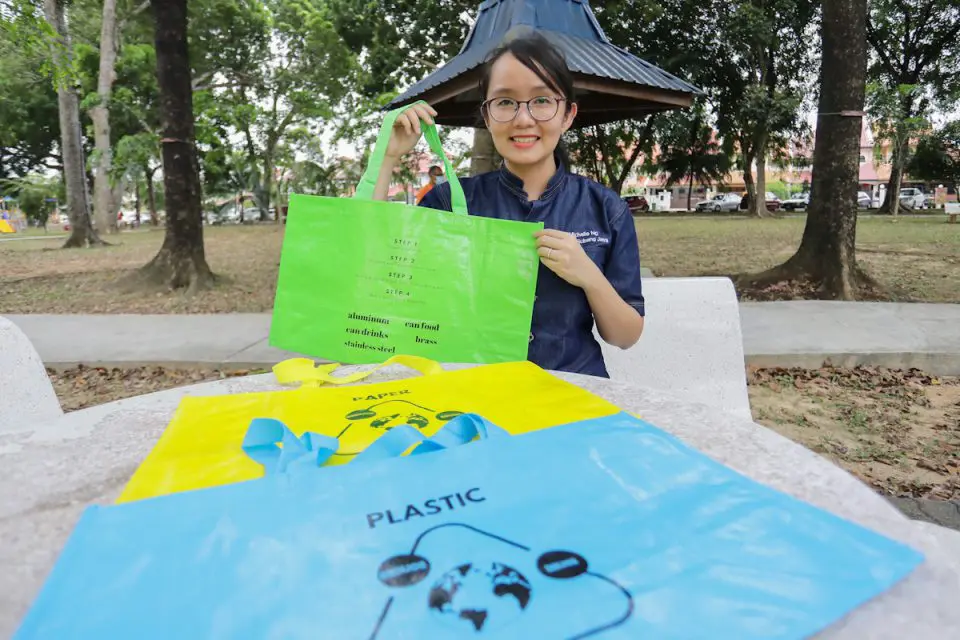By Sherilyn Pang
SELF-sustaining suburban constituency Subang Jaya has been under the care of Michelle Ng Mei Sze since 2018. After 20 years operating as a municipality, the constituency under the Subang Jaya Municipal Council (MPSJ) is finally set to herald its highly-anticipated ‘city’ status on October 20.
In an interview with Selangor Journal, Ng, who completed her Bachelor of Laws (LLB) at the London School of Economics on a Maxis Scholarship, said she decided to trade her legal profession for a chance to stand for public office during the 14th General Election in 2018. Having won with a whopping majority, her goal now is to put in place long-term solutions that will safeguard the future of the residents of Subang Jaya.
Selangor Journal (SJ): Give us an introduction to your constituency, and tell us how it has progressed?
Michelle Ng (MN): Historically, Subang Jaya (SS12-19, USJ1-22) was a plantation. It also includes Sunway, which was a mining site. These areas were then developed into a township by Sime UEP Properties Bhd and the Sunway Group, respectively. SS12-19 began developing from 1976 to1988, followed by USJ. The Sunway area, on the other hand, started developing in 1986. Subang Jaya is a suburban constituency which prides itself in being a self-contained township. Residents have access to education, entertainment, daily needs and more without having to travel far.
SJ: What is the main attraction of Subang Jaya?
MN: People would mainly travel to Subang Jaya for tertiary education. Subang Jaya is a flourishing education hub with some of the best private universities in Malaysia. These include Sunway University, Monash University, Taylor’s University, INTI College and SEGi College. Besides providing quality and globally-recognised qualifications, these universities also have a wide network of international universities making it the go-to (education) destination not only for Malaysians but also for students from abroad.
SJ: What are some of the concerns raised by your constituents? How do you address them?
MN: The biggest challenge now is water disruption caused by pollution. Subang Jaya receives its water from two main rivers — Sungai Selangor and Sungai Semenyih — which have been affected by odour pollution incidents. During the November 2019 state assembly sitting, I brought a motion for a dedicated committee to be set up to monitor these issues. In March this year, the Special Select Committee on Selangor Water Resource was formed and I was appointed to lead the committee. The function of the Select Committee is to act as legislative oversight on matters relating to water resources.
Since then, we have tabled a thorough report in the June 2020 State Assembly Sitting, proposing 38 recommendations to deal with the issue of pollution. Most of these recommendations require funding, except for legislative reforms. We have since lobbied for stricter penalties, at least for laws within state control, namely the Selangor Waters Management Authority Enactment. We are made to understand that the executive has taken heed of our call, and will be tabling amendments in the upcoming State Legislative Assembly.
SJ: What are some of your achievements in the constituency thus far?
MN: A staggering problem I was met with was the number of suicide cases within the constituency. Due to the struggle and stigma faced by those experiencing mental illness, my office decided to set up SJ Care Warriors which is a Mental Health Taskforce comprising mental health professionals and volunteers who provide training in suicide prevention and champion resilience-building for the youth. To date, we have trained 120 people in suicide prevention and 90 people in resilience-building.
Subang Jaya is soon becoming an ageing population. Through our work with the Senior Citizen’s Club of Subang Jaya, the club has been selected by the Social Welfare Department to become a Elderly Activity Centre (PAWE) for the Parliament of Subang. We successfully lobbied for an allocation of RM100,000 in 2019 for the cost of setting up the centre. PAWE has organised many programmes and events for the elderly.
Another successful initiative under our belt is the Pusat Peduli Kanak-Kanak, which functions as a place of refuge and serves as an activity centre for children. It was through our partnership with the Social Welfare Department and the State Health, Welfare, Women Empowerment and Family Committee that Subang Jaya was chosen to pilot this project.
In realising the full potential of recycling, my office launched two types of recycling projects — an at-source recycling project whereby every household in USJ 5/1&2 and USJ 2/5 were given three different-coloured reusable and washable bags for waste separation, and a RM5,000 allocation for selected strata developments to purchase recycling bins.
SJ: What are some of your problem-solving methods?
MN: Fact-finding first. That means to listen to both sides. Conduct studies and research, if required. In problem-solving methods, affected parties want to know that the decision-maker or mediator has heard them fully for sufficient and adequate backgrounds to be established to make an informed assessment. This also allows opposing sides to vent or voice out, which helps with the emotional process. That is a step which is often missed. From there, I assess the strengths and weaknesses of both sides and begin negotiations to bring the parties to a common ground.
This article first appeared in the Selangor Journal monthly October edition, published on October 12, 2020.





